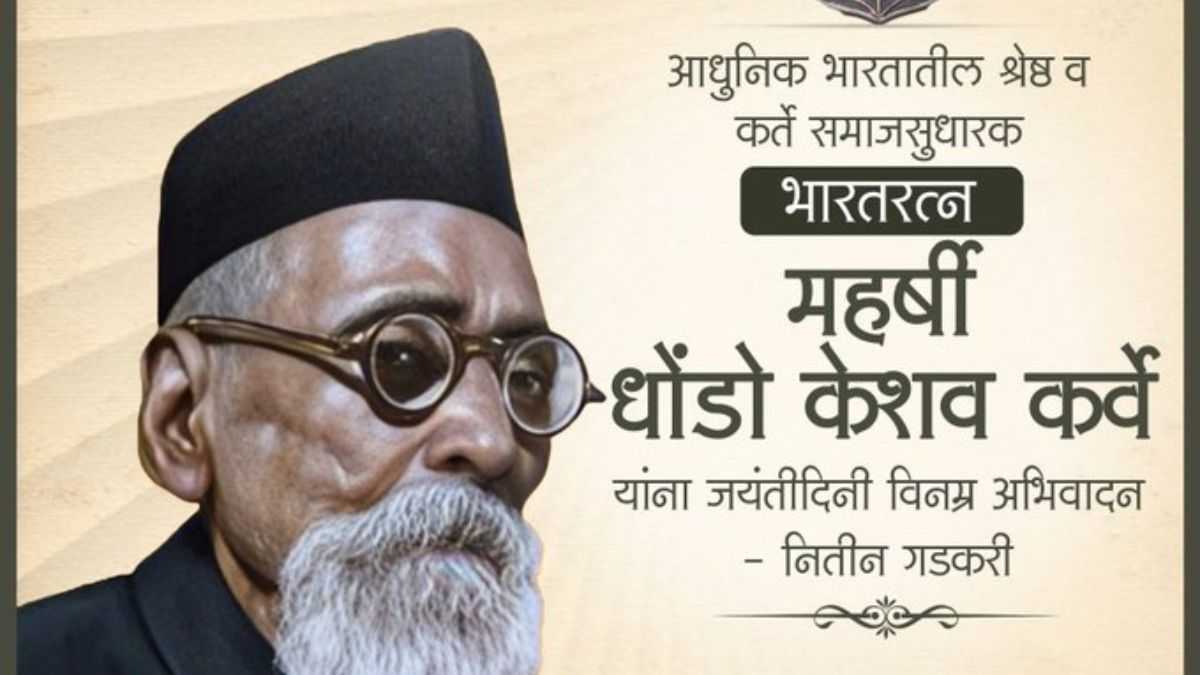- Nitin Gadkari paid tribute to Maharshi Dhondo Keshav Karve on his birth anniversary for his significant contribution to women’s education in India.
- Maharshi Dhondo Keshav Karve was a social reformer who founded the first university for women in India and provided education and vocational training to widows.
- Karve received several awards for his contribution to women’s education, including Bharat Ratna, India’s highest civilian award.
- Karve’s life and work continue to inspire people to work towards empowering women in India.
Maharshi Dhondo Keshav Karve was a social reformer who dedicated his life to women’s education in India. On the occasion of his birth anniversary, Nitin Gadkari, the Union Minister for Road Transport and Highways, paid tribute to him for his significant contribution to the field of women’s education in India.
Know about Dhondo Keshav Karve:-
Early Life and Education
Dhondo Keshav Karve was born on April 18, 1858, in Ratnagiri, Maharashtra. He completed his early education in Ratnagiri and then moved to Mumbai for higher education. He graduated from Elphinstone College, Mumbai, in 1884 with a degree in Mathematics and Physics.
Work as a Social Reformer
After completing his education, Karve started working as a teacher at Fergusson College in Pune. However, he soon realized the dire state of women’s education in India and decided to dedicate his life to the cause. In 1896, he founded the Widows Home in Pune to provide shelter to widows who were often neglected and ostracized by society.
In 1916, he established the Women’s University in Pune, the first university for women in India. The university provided higher education to women and offered courses in a range of subjects, including Arts, Science, and Commerce. He also founded the Hindu Widows’ Home Association, which aimed to provide education and vocational training to widows.
Achievements and Awards
Karve’s contribution to the field of women’s education in India was immense. He received several awards for his work, including the title of Bharat Ratna, India’s highest civilian award, in 1958. He was also awarded the Padma Vibhushan in 1955 and the Padma Bhushan in 1952.
Must read latest Stories








